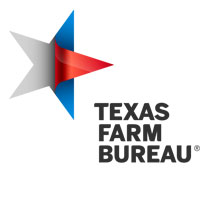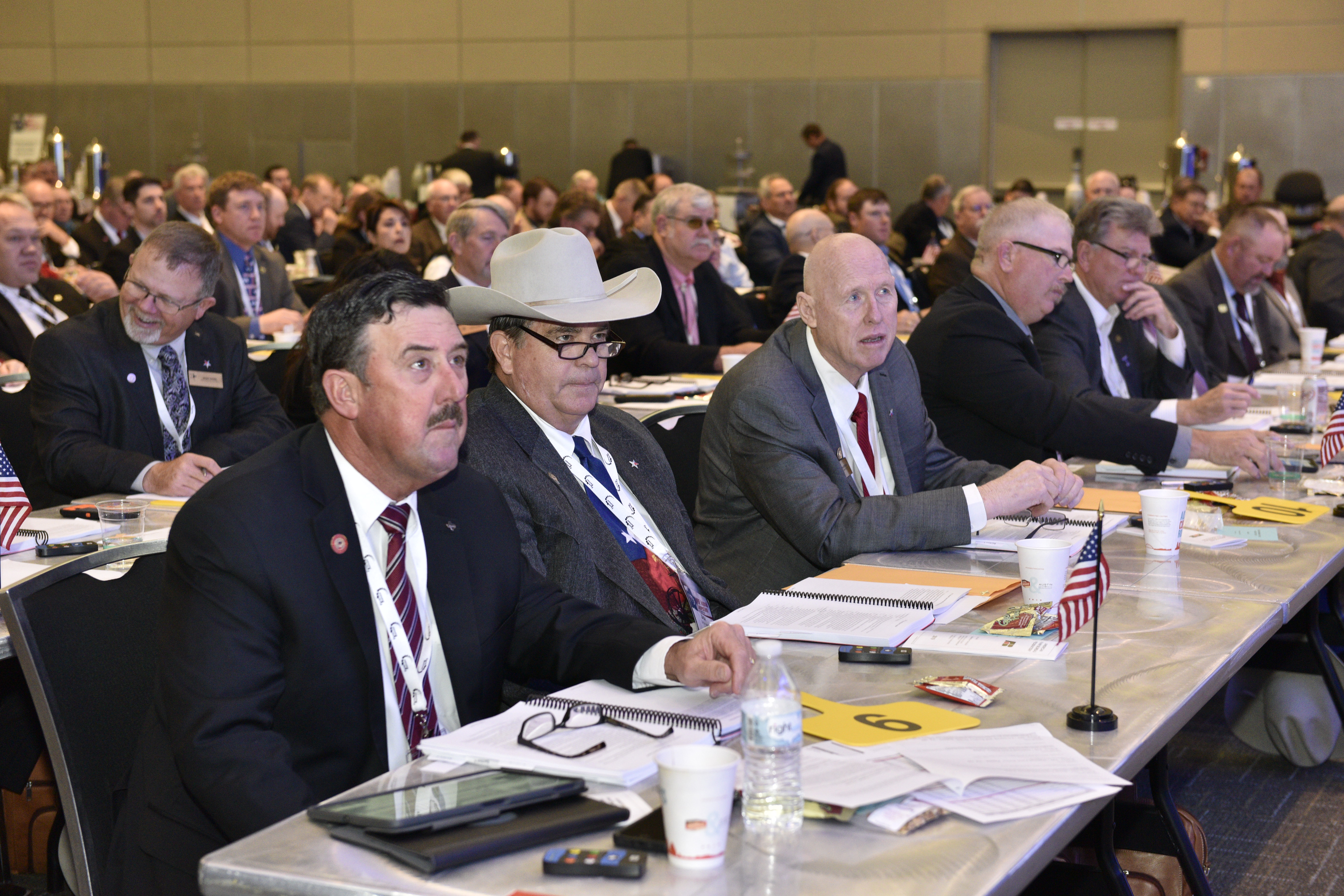Texas farmers, ranchers help set national Farm Bureau policy
(AUSTIN, Texas)—Texas delegates at the American Farm Bureau Federation (AFBF) policy session led an effort to firmly establish guidelines for preventing further spread of cattle fever ticks.
“Cattle fever ticks, and the disease they carry, can have a devastating impact on the cattle business,” Texas Farm Bureau (TFB) President Russell Boening said.
Farmer and rancher delegates voted to support wildlife fencing along the U.S.-Mexico border in the permanent quarantine zone to help stop the inflow of livestock and wildlife—such as nilgai, deer and other exotic hoofstock—that are potential carriers of cattle fever ticks.
The second resolution that was proposed by TFB members and approved by the national voting delegates states that all livestock and wildlife should be dipped or sprayed before the animals are allowed to be transported out of quarantine premises.
“Transporting animals out of quarantine areas can increase the exposed areas, and ranchers who are unaware of this exposure could contaminate other livestock, wildlife and feed supplies throughout the state,” Boening said. “It’s a very important issue to Texas, and the rest of the delegate body realized that.”
Delegates also voted to support allowing a higher THC level in hemp, giving AFBF staff the flexibility to engage in discussions with regulators about the appropriate legal level, and to increase the window of time farmers are allowed to conduct THC testing, acknowledging the many questions about how the testing process will work and the potential for backlogs.
New policies that support science-based climate change research and the documentation of agriculture’s tremendous advances toward climate-smart practices were adopted. Delegates also made clear they want federal climate change policy to reflect regional variations, and they oppose a state-by-state patchwork of climate change policies.
Delegates also passed policy addressing lab-produced and synthetic foods. They supported mandatory, thorough and routine in-depth scientific studies, testing and monitoring of foods created through synthetic food production to ensure they are safe.
New policies were adopted on feral hog control. Delegates voted to support federal and state eradication efforts due to the risk they present to humans, livestock, crops and property.
Delegates registered support for expanding the definition of young and beginning farmers and ranchers, as well as extending the period of eligibility to 15 years on U.S. Department of Agriculture and Farm Service Agency programs.
The policies adopted by the delegates guide AFBF’s work in 2020 on agricultural issues impacting farmers, ranchers, rural communities and consumers.
“This policy process is truly grassroots, and it keeps our membership engaged. These are county leaders from Texas, and they were here in Austin representing their county, their state. The resolutions we considered during the business session originated in counties all across the nation,” Boening said.
In other business, delegates also re-elected AFBF President Zippy Duvall and Vice President Scott VanderWal for their third terms. VanderWal served as chair of the meeting on behalf of Duvall, who is grieving the loss of his wife, Bonnie.
TFB members Braden and Jordan McInnis from Anderson County were named the winners of AFBF’s Young Farmer & Rancher Achievement Award competition. The award recognizes the accomplishments of young agricultural leaders between the ages of 18 and 35 who actively make a living from farming and ranching and rewards them for their hard work and determination.
TFB also took home the New Horizon Award and Pinnacle Award.
The New Horizon Award honors states with the most innovative new programs. TFB was recognized for the partnership with the Texas Restaurant Association and efforts to connect farmers and ranchers with restaurant owners and operators in the Lone Star State. This helped continue the conversation about our food and modern agriculture.
The Pinnacle Award is the highest honor a state can be awarded for program and membership achievement. TFB took home category wins in Advocacy; Engagement and Outreach; Leadership and Business Development; and Membership Value.


